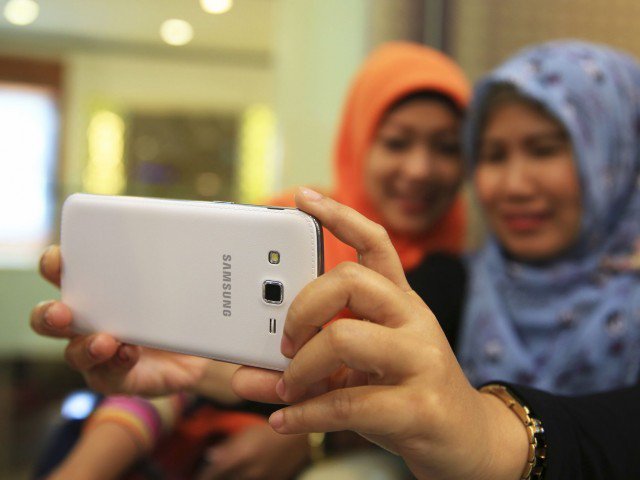News Source: Express Tribune
The Darul Uloom Deoband in Uttar Pradesh’s Saharanpur, one of the largest Islamic seminaries in India, has issued a fatwa that bans Muslims from posting pictures on social media sites, reports India Today.
Yes, that’s correct. No Facebook, no Instagram, no SnapChat.
Darul Iftaa, which issues edicts (official orders or proclamations) for the Darul Uloom Deoband, is said to have announced that Muslims, men and women alike, should not post pictures of themselves or their family members on social media.
They are counting the act of posting personal images as ‘un-Islamic’.
Why the fatwa?
A few days back, a person submitted a written question to the Fatwa department at Darul Iftaa, asking whether posting pictures of himself or his wife on Facebook and Whatsapp was un-Islamic or not.
In the wake of this query came the fatwa saying that Islam doesn’t allow the act.
Reports have it that earlier this month, the Darul Uloom Deoband also issued a fatwa calling ban on women plucking, trimming, shaping their eyebrows and cutting hair.
A Muslim man from Saharanpur had asked Daul Iftaa on Islamic laws about eyebrow trimming and hair-cutting. “Do Islamic laws allow my wife to go for eyebrow plucking and hair-cutting?” the man asked Darul Iftaa.
In response to his query, the Darul Iftaa issued a fatwa saying that both the acts were ‘un-Islamic’ and banned under Islamic laws. “If a Muslim woman is involved in such acts then she is violating Islamic laws,” read the fatwa in Urdu.
Darul Iftaa clarified that there are 10 acts, including eyebrow plucking and hair-cutting which were banned for Muslim women under Islam. “Hair adds to the beauty of Muslim women and they should never get them cut, pointed the fatwa. Issuing the fatwa, Darul Iftaa head Maulana L. Sadiq Qasmi said, “Muslim women should stay away from beauty parlours as Islam does not permit them to have make-up that attracts other male members.”
He added that Muslim men too were not allowed to shave under Islam, trim eyebrows, wear make-up etc is.
“The trend of Muslim women going to beauty parlours has increased in the country. It is not a good sign and it should be stopped immediately. We should have issued a fatwa in this regard long ago,” he maintained.
Three years ago, the Darul Iftaa in London had conducted a detailed study on the contentious issue taking into account all schools of Islamic thought including Hanafi, Maliki, Shafi and Hanbali.
It also imposed a similar ban with an exception that Muslim women – married or unmarried – were allowed to remove facial hair if they develop moustache, beard or unwanted hair with permission from the husband or other male members.
“If there is no such defect then it is not permitted for a Muslim girl or woman to expose her eyebrows in front of non-Muslim men” the study concluded.
But most Muslim women have refused to follow the new fatwa. “They have no right to curtail our freedom. The world is changing. Muslim women are now allowed to drive in Gulf countries and they are issuing fatwas on eyebrow plucking. It is a shame on our Maulanas and scholars,’ said Sophia Ahmed.
Another woman, Safia Begum, said, “The fatwa also applies on Muslim men not to shave. Show me how many Muslim men in India are keeping a beard these days, except for these fake Maulanas. They should better watch ‘Lipstick under my burqa’ before issuing such ridiculous fatwas. Like me, the majority of the Muslim women in India will defy the ban.”




